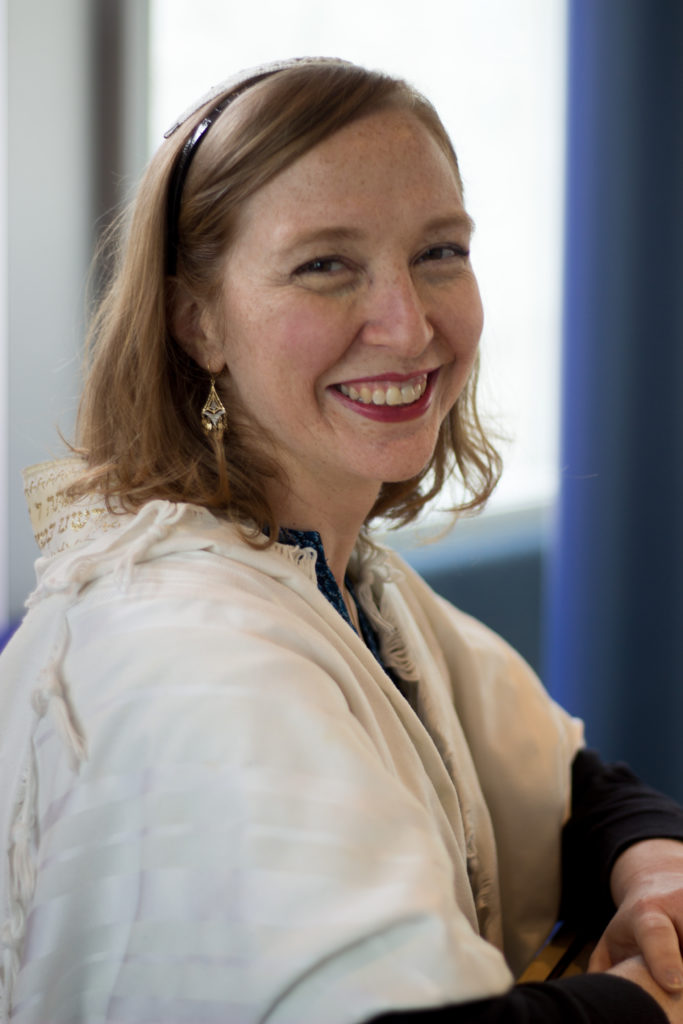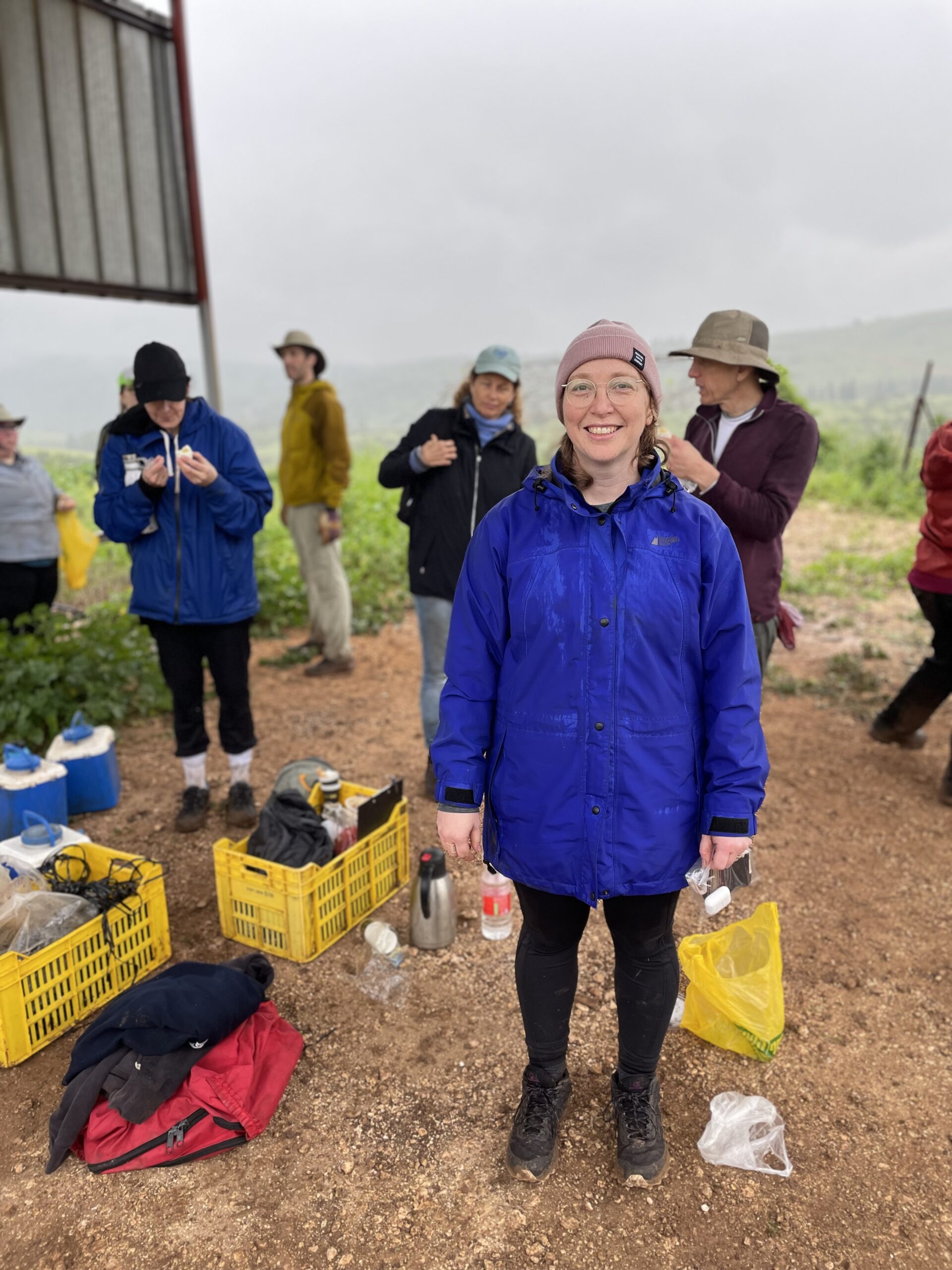Last Sunday, I was sitting in a multi-purpose room in a luxury hotel near Tel Aviv. Instead of business travelers and honeymooners, the hotel now houses families – grandparents, toddlers, and parents – evacuated in October from their homes at the border with Lebanon due to the danger from Hezbollah. The lobby featured a rack of donated Purim costumes and some haphazard decorations. As our group listened to evacuees speak, several toddlers explored the room in superhero capes and princess dresses. The group was religious and secular, Ashkenazi and Sephardic, old and young.
The mother of the superhero toddler shared that she is a lawyer, and her husband is serving in Gaza right now. She’s been living in the hotel with her four young children since October. Walking with her children, her 6-year-old saw posters of the hostages and asked what they were. The mother felt she should not hide the truth and told her. Her daughter then took her 1-year-old brother’s hand and said, “Don’t worry, we won’t let anyone take you.”
Another woman walked into our gathering, and someone said, “We need to acknowledge her. She built a kindergarten here for all the children out of nothing. Now the parents can work or rest.” The kindergarten builder was embarrassed by the enthusiastic applause and waved it off.
Our host was a councilwoman for the area. She had returned to her home despite the danger because she wanted to live with her own things in her own house. She makes the trip regularly to the hotel to be with her constituents.
I was in Israel last week on a volunteer farming mission with Adamah. In the mornings, we farmed; in the evenings, we heard from speakers on environmentalism, shared society initiatives, and food security issues. This was the mission I wanted to be on: It embodied Clal’s values of pluralism and optimism, which we’ve been putting into practice for 50 years. I felt grateful to be a Clal faculty member and to be supported by Clal in this work.
We picked lettuce, pruned mango trees, weeded, and adjusted irrigation piping. For all the trouble and expense it took for us each to get there, though, it felt at times like we weren’t making much of a dent in anything. Compared to the size of what needed to be done, we wondered: had we really made any impact at all?
In this week’s parashah, Tzav, we hear the instructions for how the priests are to make the daily offerings on the altar. Before getting to the details, we start with this:
“The fire on the altar shall be kept burning, not to go out; every morning, the priest shall feed wood to it, lay out the burnt offering on it, and turn into smoke the fat parts of the offerings of well-being. A perpetual fire shall be kept burning on the altar, not to go out.” (Leviticus 6:5-6)
It is the daily work of keeping the fire burning that is most important. It’s not glamorous. It’s not the Yom Kippur ceremony of the high priest. It’s the day-in, day-out shifts of adding wood to the pile. Sometimes, that’s getting your kids dressed, even when their father is away fighting. Sometimes, it’s creating a kindergarten in a hotel. Sometimes, it’s simply saying, I have hope for peace and for the future, and inspiring someone else to have hope, too. And sometimes, it’s pruning a couple dozen rows of mango trees.
In this difficult time, every small branch we can add to keep that fire going has an impact. We just have to figure out what it is we will add today.
On the plane ride back, I was chatting with the woman sitting next to me. When I told her why I had been in Israel, she said what many Israelis said to our group while we were there: Thank you for coming. I began to wave it off but then simply said: I was happy to do it.

Rabbi Julia Appel is Clal’s Senior Director of Innovation, helping Jewish professionals and lay leaders revitalize their communities by serving their people better. She is passionate about creating Jewish community that meets the challenges of the 21st century – in which Jewish identity is a choice, not an obligation. Her writing has been featured in such publications as The Forward, The Globe and Mail, and The Canadian Jewish News, among others.

